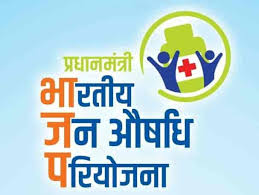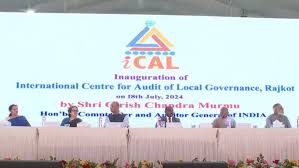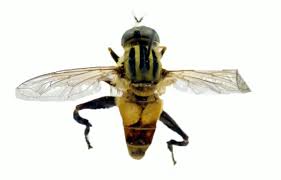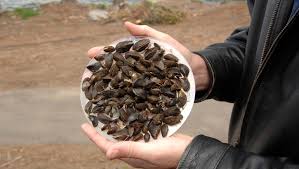Today’s Current Affairs: 22nd July 2024 for UPSC IAS exams, State PSC exams, SSC CGL, State SSC, RRB, Railways, Banking Exam & IBPS, etc
Table of Contents
IISR Wins Best Technology Award:

The Indian Institute of Spices Research (IISR) won the best technology award at the 96th Foundation Day of the Indian Council of Agricultural Research (ICAR) for its cutting-edge work in horticultural studies.
- Union Minister for Agriculture and Farmers’ Welfare Shivraj Singh Chouhan gave this award to him in New Delhi.
- The interesting technology, called “Process for instant soluble turmeric enriched spice-flavored milk powder,” is one of the five best new ideas from the Horticulture Sciences Division of ICAR. This new development shows a big step forward in how food is processed.
- Together with the Malabar Regional Co-operative Milk Producers’ Union Limited, the technology went on sale in 2020.
- Two successful products, Golden Milk and Golden Milk Mix, were made and sold thanks to this relationship.
- The technology that was given out was made by K. Anees, Rajeev P., E. Radha, and C. K. Thankamani, who are all IISR experts.
- Their study was mostly about finding ways to get around the big problem that turmeric doesn’t dissolve in water.
India’s Next Ambassador To The US:

The Ministry of External Affairs (MEA) chose Vinay Mohan Kwatra to be India’s new ambassador to the United States.
- He took over for Taranjit Singh Sandhu, who retired in January 2024.
- This news comes at a time when Kwatra is getting ready to start his new job.
- A well-known Indian Foreign Services officer from the 1988 group is Vinay Mohan Kwatra.
- He was India’s Foreign Secretary until July 2023. He had planned to leave in April but got an extra year to do so.
- Vinay Mohan Kwatra is an Indian diplomat, currently serving as the Secretary (East) in India’s Ministry of External Affairs. He joined the Indian Foreign Service in 1995.
- Kwatra has held key positions in various countries, including the USA, China, and Nepal. He was pivotal in managing relations during the 2015 Nepal earthquake.
Dual-Tower Solar Thermal Plant:

China has introduced the world’s first dual-tower solar thermal power plant in Gansu Province, enhancing energy efficiency by 24%.
- This innovative plant features two 200-meter-tall towers, each surrounded by nearly 30,000 mirrors that concentrate sunlight onto the towers to generate steam and drive turbines for electricity production.
- The plant’s unique design involves two towers and overlapping mirror circles, allowing mirrors to serve either tower, boosting efficiency.
- Acts as a thermal battery, storing excess heat collected during the day and releasing it at night for continuous power generation.
- Mirrors are made from specialized materials achieving a 94% reflection efficiency.
- Automatically adjust to follow the sun’s movement, concentrating rays on the eastern tower in the morning and shifting westward in the afternoon.
First Overseas Jan Aushadi Kendra:

India’s first overseas Jan Aushadi Kendra was inaugurated in Mauritius.
- This event highlights the strong bilateral cooperation in the health sector between India and Mauritius.
- The Jan Aushadi Kendra aims to provide affordable generic medicines to enhance public healthcare in Mauritius.
- Janaushadhi Kendras are centres that provide quality generic medicines to the public.
- Supported by the Bureau of Pharma PSUs in India (BPPI) under the Pradhan Mantri Bhartiya Janaushadhi Pariyojana (PMBJP), these centres aim to make affordable healthcare accessible.
- The government has set a target to increase the number of Janaushadhi Kendras to 10,500 by the end of March 2025.
International Centre For Audit Of Local Governance:

The International Centre for Audit of Local Governance (iCAL) was inaugurated by the Comptroller and Auditor General (CAG) of India.
- iCAL, the first of its kind in India, aims to set global standards for auditing local governance bodies.
- iCAL will bring together policymakers, administrators, and auditors associated with local governments to enhance auditing practices and capacity building.
- The centre aims to set international benchmarks for local governance audits, improving financial performance assessment, service delivery, and data reporting.
- iCAL’s primary goal is to empower auditors, executives, and elected representatives of local governments through training and leadership development.
- The centre will function as a knowledge hub and think tank, addressing governance issues through workshops, knowledge-sharing sessions, and peer exchanges.
National District Mineral Foundation Portal:

The union Minister of Coal and Mines launched Mineral Exploration Hackathon and the National District Mineral Foundation (DMF) Portal.
- National District Mineral Foundation Portal is a centralized platform to gather the information on the District Mineral Foundations across the country.
- The aim for launching this portal is to facilitate the access to the DMF data and track the developments and utilizations thereunder.
- This portal provides details of 645 DMFs in the country with enhanced transparency, featuring centralized visibility of activities, project oversight, and dynamic analytics, as well as a repository of best practices for effective implementation.
- District Mineral Foundation is a trust set up as a non-profit body under the Mines and Minerals (Development and Regulation) (MMDR) Amendment Act 2015.
- Purpose is to work in the interest and benefits of persons and areas affected by mining-related operations in a manner as may be prescribed by the respective State Government.
- It is funded through the contributions from the holders of major or minor mineral concessions in the district, as may be prescribed by the Central or State Government.
Modified Interest Subvention Scheme:

The Centre plans to increase the upper limit of the short-term crop loans under the Modified Interest Subvention Scheme (MISS) from Rs 3 lakh to Rs 5 lakh.
- Modified Interest Subvention Scheme is a Central Sector Scheme, 100% funded by the Government of India.
- It was launched in the year 2006-07 with a view to provide short term Agri-loans availed by farmers through Kisan Credit Card (KCC) for their working capital requirements at concessional rate of interest.
- At present, interest subvention is being given to concerned Financial Institutions (Scheduled Commercial Banks (SCBs)/ Small Finance Banks/ RRBs/ Cooperatives/ Computerized PACS ceded with SCBs) providing the loan.
- Farmers engaged in Agriculture and other allied activities can acquire Kisan Credit Card loans up to Rs 3 lakh at a benchmark rate of 9%.
- However, the Centre provides 2% interest subvention on the benchmark rate, bringing down the effective rate of interest to 7 per cent.
- An additional 3% concession for prompt and timely repayment further reduces it to 4% per year.
Flower Flies : Two Species Reported

Researchers of the Shadpada Entomology Research Lab (SERL) of Christ College, Irinjalakuda, have reported two species of flower flies for the first time from Kerala.
- Mesembrius bengalensisand quadrivittatus have been discovered from the Kole wetlands and Vilagan Kunnu hillocks of Thrissur district.
- Flower flies belong to the family Syrphidae of order Diptera and are commonly called flower files because they are frequent visitors of flowers like bees and wasps.
- They are flies that evolved to mimic bees or wasps to escape from their predators.
- Flower flies are important pollinators.
- Larvae of these flies are excellent biological control agents and nutrient recyclers.
National Clean Air Programme : New Study

A new study by Centre for Science and Environment (CSE) said that road dust mitigation works undertaken to reduce particulate matter 10 (PM10) pollution is draining a lion’s share — 64% — of funds under the National Clean Air Programme (NCAP).
- National Clean Air Programme was launched in January, 2019 by the Ministry of Environment, Forest, and Climate Change.
- It is a long-term, time-bound, national level strategy to tackle the air pollution problem across the country in a comprehensive manner.
- Objectives
- Stringently implementing mitigation measures to prevent, control, and abate air pollution.
- Strengthening an air quality monitoring network across the country.
- Increasing public awareness and capacity building measures.
- NCAP envisages reduction by 20-30% in PM 10 concentration over baseline in year 2017 by 2024.
- Target has been revised to achieve reduction in PM10 level up to 40% or achievement of national standards (60 µg/m3) by 2025-26.
- In accordance with the Air (Prevention and Control of Pollution) Act, 1981, the Central Pollution Control Board (CPCB) will execute this nationwide program.
- 131 non-attainment cities have been identified across the country for the implementation of the programme.
- City-specific action plans have been developed, which include measures to strengthen the monitoring network, reduce vehicular or industrial emissions, raise public awareness, etc.
RoDTEP Scheme : In News

The tea industry has sought higher rates under the RoDTEP scheme to make exports more competitive in overseas markets.
- RoDTEP Scheme is a flagship export promotion scheme of the Union Ministry of Commerce and Industry.
- The WTO-compliant scheme aims to refund to the exporters the embedded central, state, and local duties and taxes paid on inputs that have so far not been refunded or rebated.
- RoDTEP was announced in September 2019 with the aim of boosting domestic exports and replacing the export incentive scheme, Merchandise Exports from India (MEIS) scheme.
- This came after a World Trade Organization (WTO) ruling stated that the MEIS scheme violated the provisions of the trade agency as it was providing export subsidies for a several range of goods.
- The government decided to extend the benefit of the RoDTEP scheme to all goods, with effect from January 1, 2021, according to a notification by the Directorate General of Foreign Trade (DGFT).
- By providing support to crucial export sectors, the government aims to not only enhance their competitiveness but also create employment opportunities and contribute to overall economic growth, aligning with the vision of building an Aatmanirbhar Bharat.
- This scheme is open to both manufacturers and merchant exporters, without any threshold of turnover.
- The most important condition is that such goods should have been directly exported by such a person.
- The RoDTEP scheme covers physical exports as well as outbound shipments of services from India. Service providers can also claim refunds on applicable hidden levies.
Zebra Mussel : Spotted

Zebra mussel, an invasive species capable of wiping out entire aquatic ecosystems, has been found for the first time in the Colorado River, the most important river in the American Southwest.
- Zebra mussels are an invasive, fingernail-sized mollusk.
- Scientific Name: Dreissena polymorpha
- They are native to the Caspian and Black Seas, south of Russia and Ukraine.
- They entered the Great Lakes of North America in the late 1980s through ballast water discharged from ships.
- Since then, they have spread through much of eastern Canada and the United States.
- They live underwater, attached to natural and manmade substrates such as rocks, wood, plants, native mussels, pipes, docks, boat lifts, swim rafts, moored watercraft, and other debris.
- They are easy to identify, with a distinct, flat-bottomed ‘D’ shape to their shells that allows them to sit flat against a solid surface, and black, zigzag stripes against a cream background that earned them their name.
- They grow around two inches long at most, and are microscopic in their larval stage, which is known as a “veliger.”
- They are short-lived (between two and five years), and begin reproducing at two years of age.
- Zebra Mussels are especially harmful for native mussels, many of which are species at risk. They outcompete these species for food and will attach themselves to native mussels, suffocating them.
- Their massive clustering on water-intake valves and pipes, bridge abutments, and other structures can cause severe commercial damage.
Rapid Apophis Mission For Space Safety:

The European Space Agency recently announced that its new Ramses spacecraft may accompany the asteroid Apophis before and after its safe, albeit rather close, pass of Earth.
- Rapid Apophis Mission for Space Safety (RAMSES) is a planetary defence mission of the European Space Agency (ESA).
- It will intercept the asteroid 99942 Apophis and accompany it through its safe but exceptionally close flyby of Earth in 2029.
- Roughly 375 m across, Apophis will pass within 32,000 km from Earth’s surface on 13 April, 2029.
- It will be the closest approach of an asteroid of this size that humankind has ever known about in advance.
- For a short time, Apophis will be visible to the naked eye in clear, dark skies for about 2 billion people across much of Europe, and Africa, and parts of Asia.
- Apophis will miss Earth. Astronomers have ruled out any chance that the asteroid will collide with our planet for at least the next 100 years.
- But the Apophis flyby in April 2029 is an extremely rare natural phenomenon.
- Researchers will study the asteroid as Earth’s gravity alters its physical characteristics.
- Their findings will improve our ability to defend our planet from any similar object found to be on a collision course in the future.
- RAMSES will work in synergy with the NASA mission OSIRIS-APEX that will arrive at Apophis a few days after the closest approach of the asteroid to the Earth, allowing a comparison of the asteroid properties measured by the two missions.




